This is the quote of Professor Ha Minh Duc to honor the special talent of the great cultural figure and artist Nguyen Dinh Thi at the National Scientific Conference "Cultural and artistic heritage of Nguyen Dinh Thi for today" on the occasion of the 100th anniversary of his birth (December 20, 1924 - December 20, 2024).
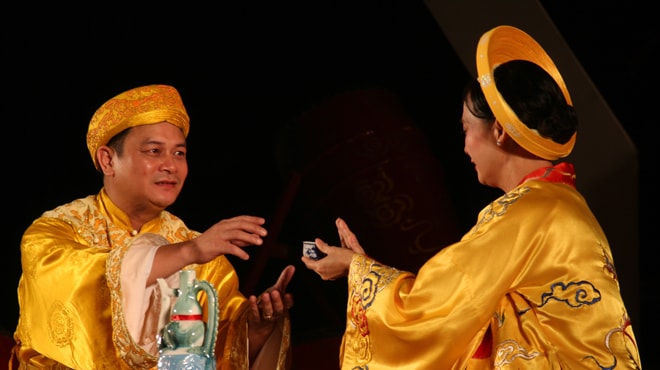
A large portrait
Looking back many years later, scientists, researchers, artists, share the same opinion: Nguyen Dinh Thi is one of the greatest and most talented artists of Vietnam in the 20th century. He composed in many fields, from poetry, novels, theory, literary criticism, to philosophical research, translation, theater, music ...
It is valuable that in any field, writer Nguyen Dinh Thi has made great contributions, inheriting the quintessence of national culture and literature, while at the same time exploring and innovating in a scientific and modern direction.
Professor Ha Minh Duc commented: "All works in all genres are made according to a consistent motto: innovation. He believes that with a new life, a new social regime, and new public tastes, literature and art must be innovative."
Writer Nguyen Dinh Thi was born on December 20, 1924 in Luang Prabang (Laos), but his hometown is Vu Thach village, now Ba Trieu street, Hanoi .
In 1931, he returned to his hometown with his family. He was passionate about literature, music, and fine arts since childhood; studied and researched philosophy as a student at Buoi School, then at the Philosophy Department of Indochina University. He wrote many philosophical books such as Introductory Philosophy, Einstein's Philosophy, Kant's Philosophy, Nietzsche's Philosophy, Metaphysics, and Descartes' Philosophy.
Nguyen Dinh Thi participated in revolutionary activities from a very young age. In the 1940s, he joined the National Salvation Cultural Group, then the National Salvation Cultural Association. In 1945, he attended the Tan Trao National Congress and was elected as a delegate to the 1st, 2nd, and 3rd National Assembly of Vietnam.
After the August Revolution, Nguyen Dinh Thi became the General Secretary of the National Culture Salvation Association. During the resistance war against the French, he continued to write philosophical treatises, prose, poetry, music, plays, and critical theories.
After 1954, he participated in the management of literature and arts. From 1958 to 1989, he was the General Secretary of the Vietnam Writers' Association. From 1995, he was the Chairman of the National Committee of the Vietnam Union of Literature and Arts Associations.
In literature, Nguyen Dinh Thi is a writer with many outstanding novels such as "Shock", "Thu Dong Nam Nay", "Ben Bo Song Lo", "Vo Lua", "Mat Tran Tren Cao"... In particular, the two-volume novel "Vo Dam" reflects a multi-dimensional picture of Vietnamese society in the period 1939-1945, bringing Nguyen Dinh Thi to the pioneering position of the heroic and romantic epic novel genre of our country's literature in the period 1946-1985.
With poetry, Nguyen Dinh Thi is a poet with a very unique, modern, concise, and musical style. Poetry is the field in which Nguyen Dinh Thi devotes much of his passion, always struggling to find creative directions to renew the appearance of poetry and is also the field that makes his name stand out with some of the best poems in Vietnamese poetry such as "Country", "Remembering", "Black Sea Poem", "Red Leaves"...
Among them, the poem “Country” is a work known and recited by many generations of Vietnamese people with its majestic verses: “Our country/ The country of those who never surrender/ Every night murmurs in the sound of the earth/ The old days echo about…”. Or: “Vietnam from blood and fire/ Shakes off the mud/ Rises up/ Shines brightly”.
Regarding the art of drama, critics have commented that Nguyen Dinh Thi's plays are a diverse and colorful cultural world, rich in poetry, philosophical melodies, and a harmonious interweaving of reality and association, making his works have a special mark. Dozens of plays by Nguyen Dinh Thi have left a deep mark on the Vietnamese drama stage, such as: "Black deer" (1961), "Flowers and Ngan" (1975), "Dream" (1983), "Bamboo forest" (1978), "Nguyen Trai in Dong Quan" (1979), "Petrified woman" (1980), "Sound of waves" (1980), "Shadow on the wall" (1982), "Truong Chi" (1983), "Hon Cuoi" (1983-1986)...
Among them, the play "Bamboo Forest" directed by veteran director Nguyen Dinh Nghi has become a classic Vietnamese stage work.
In the field of music, with only 6 songs in his composing career: "Hatred", "Destroy Fascism", "Guerrilla Army" (1945), "Hanoi People" (1947), "Elephant" (1948), "Loving Country" (1977), but the first 3 songs are outstanding works of Vietnamese music.
In the field of literary theory and criticism, Nguyen Dinh Thi is a sharp writer with a unique style. In particular, from the early days of the resistance war against the French, Nguyen Dinh Thi wrote "Nhan Duong" in 1948. This is one of the typical literary works expressing his thoughts on the artistic path and defining the mission of artists towards the resistance war and the nation. Nguyen Dinh Thi emphasized that literature and art must change to suit the circumstances of war.
Legacy
According to Associate Professor Dr. Nguyen The Ky, Chairman of the Central Council for Theory and Criticism of Literature and Art, the cultural and artistic heritage that Nguyen Dinh Thi left for the country is enormous, rich and valuable. Mr. Nguyen The Ky assessed Nguyen Dinh Thi as one of the great names of modern Vietnamese culture and art, intelligent, multi-talented, and excellent in many fields.
“Nguyen Dinh Thi left behind a huge cultural legacy with works of multifaceted value that will last forever. The success of his works is evident in their ideology, humanity, unique art, and liberal yet refined writing style. There, patriotism is blended with revolutionary ideals, national character and modernity, absorbing the quintessence of world culture, especially French, Russian, and European culture, the desire for freedom, and the kind, gentle nature that is very Vietnamese,” said Mr. Nguyen The Ky.
This is also the view of Professor Phong Le when he believes that Nguyen Dinh Thi is a great portrait, a great artist, a great cultural figure in many aspects. According to the professor, Nguyen Dinh Thi possesses all the talent, stature and courage. For Nguyen Dinh Thi, talent is almost innate, right from the time he appeared at the age of around 20. A very diverse talent almost appearing at the same time or interspersed, making talking about Nguyen Dinh Thi mean talking about many titles such as musician, poet, writer, playwright-author, theorist-critic... besides a social activist and a professional with a high position and long seniority in the cultural and artistic world from before 1945 until his death.
Musician Nguyen Duc Trinh, Chairman of the Vietnam Musicians Association, said that in the field of music, although he has a modest number of musical works, with only two masterpieces, “Destroy Fascism” and “Nguoi Hanoi,” Nguyen Dinh Thi has his name on the “golden board” of the nation’s musical history, becoming a monument of Vietnamese revolutionary music.
Associate Professor Dr. Ton Phuong Lan (Institute of Literature) believes that Nguyen Dinh Thi is a talented artist who has built a sharp artistic portrait of himself through his literary and artistic works in many genres, through his dedication as a senior manager of the Writers' Association and through the radiance of his talent, intelligence and style. That portrait can be viewed from many angles, under many different lights and from every angle, it sparkles with its own beauty.
Especially in his positions as General Secretary of the National Culture Rescue Association, General Secretary of the Vietnam Literature and Arts Association, General Secretary of the Vietnam Writers Association, and Chairman of the National Committee of the Vietnam Union of Literature and Arts Associations, he demonstrated his thinking, intelligence, strategic vision, and ability to grasp the breath of life of the country.
In all the positions he has held, people not only admire his talent and professional reputation, but also appreciate his ideas and perspectives on building and developing an advanced Vietnamese culture and arts, imbued with national identity, suitable for each historical period, from the period of resistance against French colonialism and American imperialism to the period of peace and innovation.
Source: https://daidoanket.vn/ngoi-sao-nguyen-dinh-thi-da-toa-sang-mot-vung-troi-10298578.html


![[Photo] Unique art of painting Tuong masks](https://vphoto.vietnam.vn/thumb/1200x675/vietnam/resource/IMAGE/2025/11/14/1763094089301_ndo_br_1-jpg.webp)




![[Photo] Unique architecture of the deepest metro station in France](https://vphoto.vietnam.vn/thumb/1200x675/vietnam/resource/IMAGE/2025/11/14/1763107592365_ga-sau-nhat-nuoc-phap-duy-1-6403-jpg.webp)


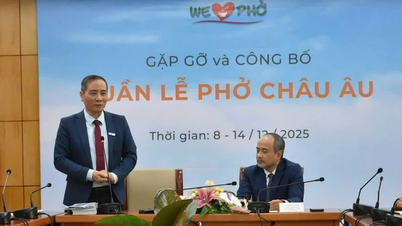









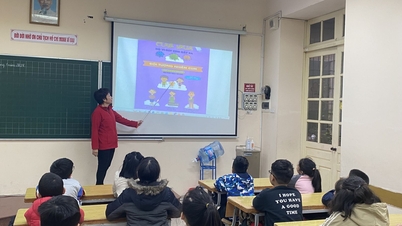
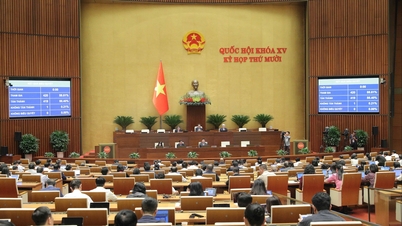



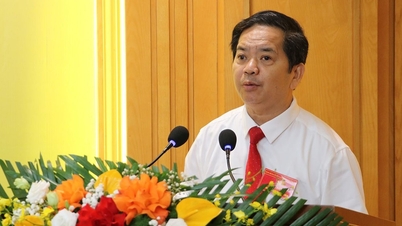

![[Photo] Special class in Tra Linh](https://vphoto.vietnam.vn/thumb/1200x675/vietnam/resource/IMAGE/2025/11/14/1763078485441_ndo_br_lop-hoc-7-jpg.webp)














































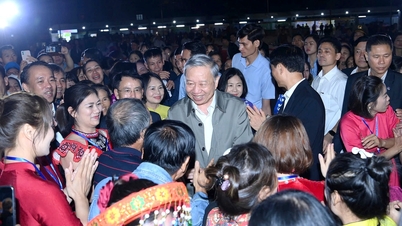












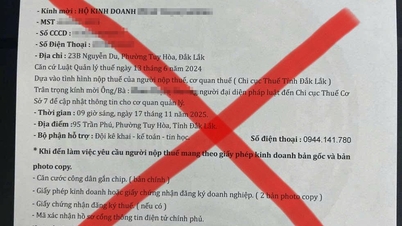

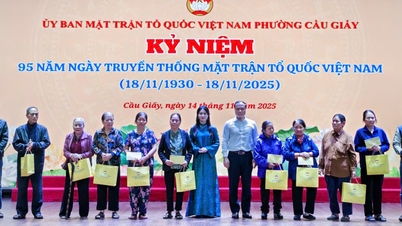
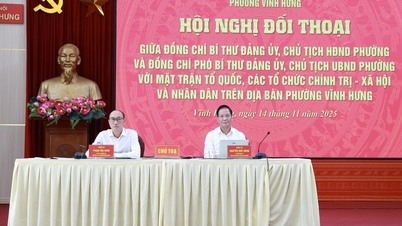








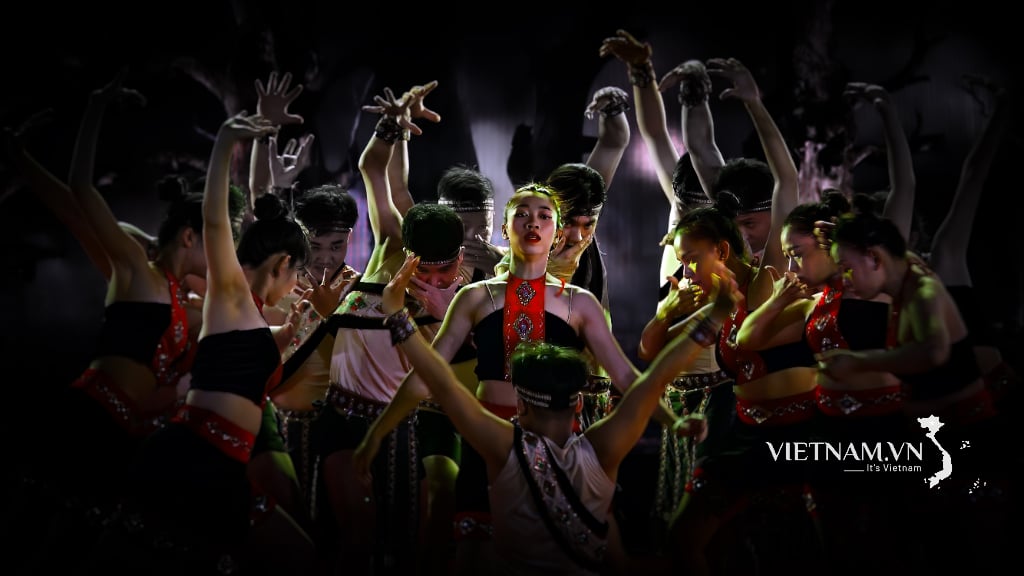



Comment (0)